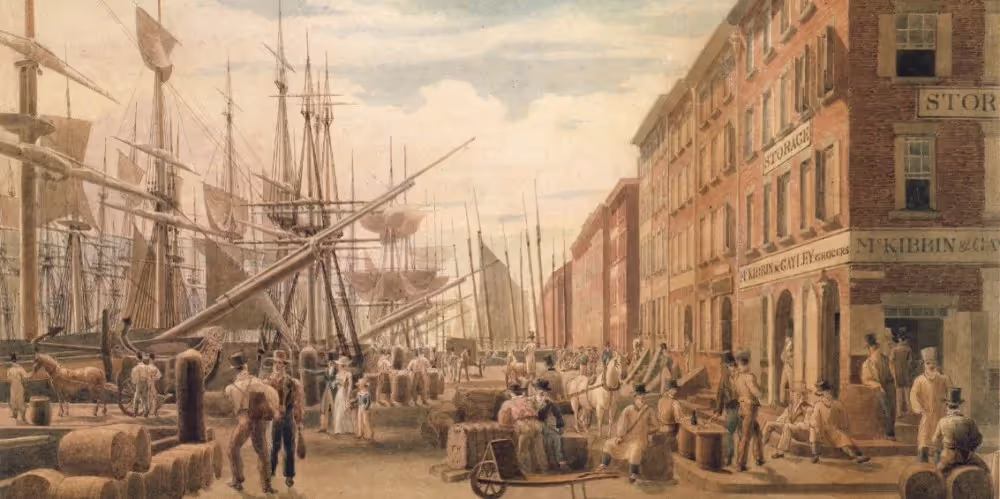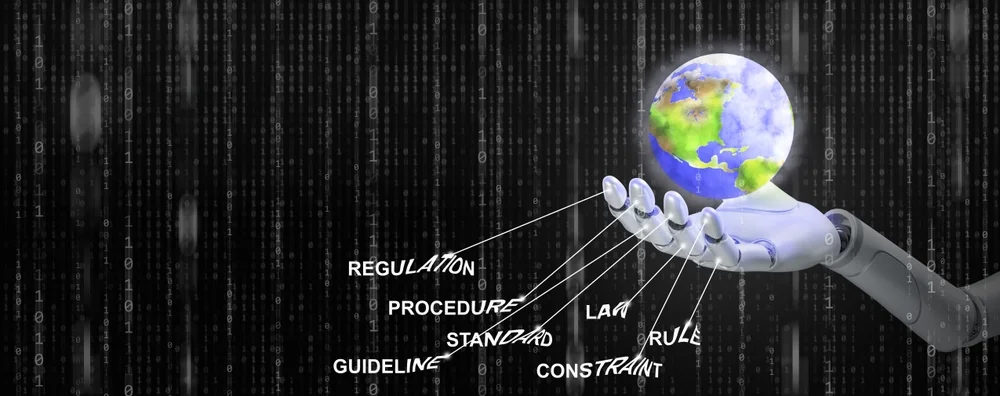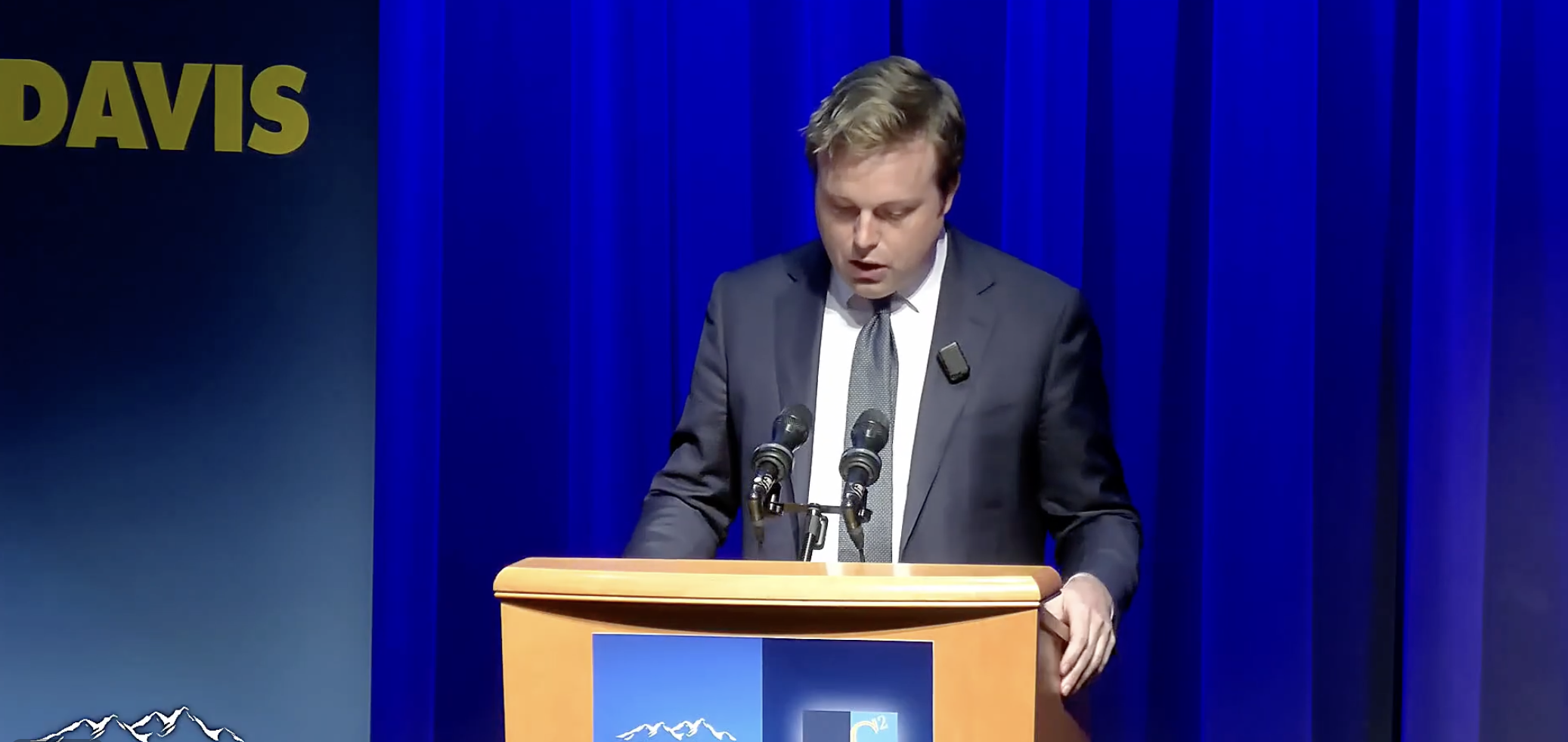
The Future of Entrepreneurship in America
Free market entrepreneurship has been the engine of social mobility for generations of young people, families, and immigrants, but today, this path is at a crossroads.
“Can-do spirit” is a defining characteristic of the American Dream: the idea that any citizen—accidents of birth notwithstanding—can capitalize on the freedom and opportunity enshrined in our founding documents to build a happy life for themselves, according to their own (within very broad limits) ideas of happiness. No one loves rags-to-riches or redemption stories more than Americans for that reason. Our very self-conception is tied to finding ways —personally and in all manner of voluntary associations— to solve practical and social problems, triumph over adversity, and “get ‘er done.”
Though today, many people’s free associations with the word “entrepreneur” might narrowly conjure up images of Silicon Valley whiz kids or wolves on Wall Street, the word “entrepreneur” comes from the French for “one who undertakes,” and it’s that quality —the willingness to try, to endeavor, to experiment, to meet a challenge head on—that accounts for America’s long love affair with enterprise. We don’t love “Big Business.” But we do admire the scrappy, can-do spirit of the entrepreneur.
With good reason. Free market entrepreneurship has been the engine of social mobility for generations of young people, families, and immigrants. “The chief business of the American people is business,” after all. Poor President Coolidge is today maligned as a crass materialist for saying it because we’ve seized on his words but not his point, which was entirely wholesome: that Americans were interested in business and trade not because they were money-grubbing, but because they understood wealth as a tool for family formation, high achievement, or having the liberty to pursue higher things. In his “Address to the Society of American Newspaper Editors,” far from arguing that greed was good, Coolidge insisted “the accumulation of wealth cannot be justified as the chief end of existence” and counseled that “it calls for additional effort to avoid even the appearance of the evil of selfishness.” Nevertheless, he argued, “we are compelled to recognize it as a means to well-nigh every desirable achievement.”
Some level of prosperity, Coolidge understood, is a building block of liberty, and it was liberty, not filthy lucre, Americans were energetically pursuing when they were plying their trades and building their businesses (a few bad apples notwithstanding). It’s far more important and satisfying to the human person to build a strong family, to forge enduring friendships and communities, to reach the height of one’s craft, to have the leisure to pursue the life of the mind and the depths of spirituality than it is to make money. Yet it’s difficult, if not impossible, to do those higher things without the security and support of a better-than-subsistence existence.
There is a profound link between enterprise and the good life, not as an end but as a means. In my book, The Art of Principled Entrepreneurship, I explore this idea, arguing that entrepreneurship is not merely the pursuit of economic gain. At its heart is creating enduring value that uplifts individuals and communities. This approach—Principled Entrepreneurship—holds the key to rejuvenating the American Dream.
For this reason, it behooves us to foster an economic environment that supports and incentivizes new businesses, mainly what economists call “SMEs” —the Small and Medium Enterprises that are the heart of any healthy economy. This is because SMEs, in their sheer numbers, provide most of our nation’s jobs, yet they are nimble enough to drive innovation. The vast multinationals often get too big to be genuinely creative. So important are SMEs to an economy; economists measure their health as an important factor when evaluating the strength of any economy and refer to the relative absence of SMEs in developing nations as the problem of “the missing middle.”
Suppose we want to foster family formation, strong religious institutions, and local associations required for a healthy civic life. In that case, we must ensure that starting or working in a small business remains a dynamic and accessible path for everyone. Our youngest and poorest citizens need to feel hopeful about their agency in pursuing the good rather than the enervating fear that the deck is stacked against them.
Today, however, the United States is at a crossroads concerning entrepreneurship. New business formations have fluctuated in recent years, especially compared to the vibrant growth of the '90s tech boom. Various challenges exist in fostering a robust entrepreneurial ecosystem, from restrictive policies to financial hurdles.
One of the most significant obstacles is the rising difficulty of entering many industries. Barriers to entry, such as complex regulations and excessive licensing requirements, disproportionately affect small businesses and startups, which have long been the actual engines of economic growth. Instead of encouraging innovation, these barriers stifle it, threatening the foundation of a competitive economy and thwarting young people and new Americans just trying to get a foothold on the American dream.
Licensing requirements and regulations spring from the need to protect public health and safety and to exert quality control over producing a good or service. But sometimes, new licensing requirements result from well-established and wealthy companies lobbying for regulations they can afford, which lock new entrants out of their fields. No one would go to a surgeon who hadn’t passed rigorous board certifications, but today, more than 1100 occupations require licenses, and it’s not clear that every one of those requirements has led to any real increase in public safety. To nurture a healthy entrepreneurial culture, we must ensure that regulations create a level playing field where businesses of all sizes can flourish and contribute to a dynamic market.
Another major issue lies in the preferential treatment that large corporations receive. Prolonged tariffs, subsidies, price controls, and other forms of government favoritism skew the market, creating an uneven playing field that discourages new ventures. As economist Edward Glaeser pointed out during his 2019 James Q. Wilson Lecture, insiders in the American economy have rigged the system against outsiders—those who bring fresh ideas and genuine innovation to the table. In addition to depressing innovation, these kinds of well-meaning interventions send false signals. A price, whatever else it is, is a form of communication. It conveys vital information such as weather conditions, supply chain problems, and the long-term viability of an industry all in one condensed number. Subsidies and price controls falsify this information, potentially misleading people making long-term decisions for their families or companies based on this information.
Increasing public debt and capital gains taxes pose substantial challenges, potentially discouraging investment and risk-taking.
To counter these trends, we need a renewed focus on economic freedom and opportunity, the very principles that have historically made the United States fertile ground for entrepreneurship. By removing unnecessary obstacles, we can create an environment that promotes calculated risk-taking and rewards creativity and responsibility. This will ensure that SMEs, which make up 99.7% of all companies in America, can continue to serve as a vital source of job creation and economic growth.
Encouragingly, positive trends are emerging. The COVID-19 pandemic, despite its widespread economic disruption, has sparked a surge in new business applications, signaling a potential revitalization of the entrepreneurial spirit. The digital economy offers new opportunities. The rise of remote work, digital platforms, and a global marketplace have lowered traditional barriers to entry, enabling entrepreneurs to innovate and scale their businesses like never before. However, when I speak to new business owners, I often encounter a fear of hiring because the regulatory burden (including high minimum wage requirements in some states) of taking on new employees makes them prefer to rely on subcontractors or, increasingly, Artificial Intelligence, rather than taking the risk of employing a young person whose skill set is still rough. So much knowledge transfer comes from young employees working with more experienced persons in an office or job site. I wonder whether SMEs will continue to be the engine of job creation without some rebalancing of regulatory incentives in this respect.
While the entrepreneurial landscape in America faces hurdles, it is also brimming with potential that could be unleashed to improve family and civic health. Encourage kids to be entrepreneurial at a young age. Bring back the lemonade stand and the paper route and make apprenticeships possible again. Help people understand the link between a climate that favors Small and Medium businesses and one that enables family formation and small associations. By recovering the link between enterprise and liberty and fostering a culture of entrepreneurship rooted in freedom, innovation, and responsibility, we can ensure that the American Dream remains within reach for future generations.
Andreas E. Widmer is an Associate Professor of Practice in Entrepreneurship at The Catholic University of America’s Busch School of Business, where he also serves as the director of the Art & Carlyse Ciocca Center for Principled Entrepreneurship.
Economic Dynamism

Do Dynamic Societies Leave Workers Behind Economically?
We need a more dynamic economy that can help workers by allowing them to move where they can best use their skills.
.jpg)
Do Dynamic Societies Leave Workers Behind Culturally?
Technological change is undoubtedly raising profound metaphysical questions, and thinking clearly about them may be more consequential than ever.

The War on Disruption
The only way we can challenge stagnation is by attacking the underlying narratives. What today’s societies need is a celebration of messiness.

Unlocking Public Value: A Proposal for AI Opportunity Zones
Governments often regulate AI’s risks without measuring its rewards—AI Opportunity Zones would flip the script by granting public institutions open access to advanced systems in exchange for transparent, real-world testing that proves their value on society’s toughest challenges.

Downtowns are dying, but we know how to save them
Even those who yearn to visit or live in a walkable, dense neighborhood are not going to flock to a place surrounded by a grim urban dystopia.

AI Needs Consumer Choice, Not Bureaucratic Control
The regulatory approach treats consumer AI as a problem to be solved rather than as another service best left to a competitive, dynamic market to provide consumers with autonomy and choice.

The Start-Up Paradox: The Coming Red Shift in Innovation
Despite London's success, the future of innovation is securely in American hands for the foreseeable future.




.jpeg)




.jpg)




